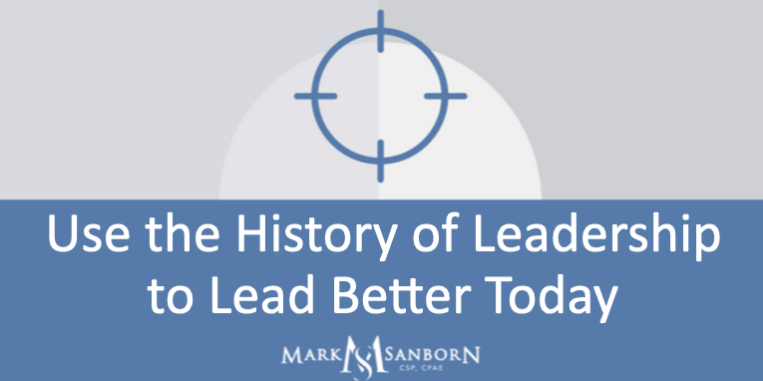George Santayana said, “Those who do not learn history are doomed to repeat it.” Likewise, those who don’t learn from history can’t benefit from its greatest lessons.
Leadership theory has always been an attempt to understand what make a leader effective and distill and share those lessons with others. Leadership theory has evolved and continues to evolve over time.
The earliest leadership theories focused on traits and characteristics of leaders, such as intelligence, physical strength, and charisma. Later theories emphasized the behavior of leaders, including the contrast of task-oriented and people-oriented styles.
During the 20th century, researchers began to focus on the situational context of leadership leading to the development of contingency theories which suggest that different leadership styles are effective in different situations. This approach recognizes that there is no one-size-fits-all approach to leadership and that effective leaders must be able to adapt their leadership style to the specific circumstances they face.
One of the most influential leadership theories of the 20th century is Transformational Leadership theory, which emphasizes the importance of leaders inspiring and motivating their followers to achieve a shared vision or goal. This theory argues that effective leaders not only provide direction and guidance, but also act as role models and catalysts that inspire their followers to transcend their own self-interests for the greater good.
Another important leadership theory is Servant Leadership popularized by Robert Greenleaf in the seventies. It was controversial at a time when title, position and status were revered because it suggested that leaders should focus on serving the needs of their followers, rather than pursuing their own self-interests. This theory emphasizes the importance of leaders being humble, ethical, and compassionate, and places a strong emphasis on the leader’s role in developing and empowering their followers.
Which of those theories do you agree with? Disagree with? And why? This is a good conversation to have with your leadership team.
That’s because to lead well it helps to learn from the past what best applies to the present. Theories are best understood as a whole but can also be used as a buffet of ideas and techniques to blend into your leadership approach.
With the various theories about leadership, what can you do today to be an effective leader? Here are twelve ideas that have withstood the test of time:
1. Be adaptable: Recognize that different leadership styles are effective in different situations, and be willing to adapt your approach as needed. Different contexts and situation require different approaches. One size rarely fits all.
2. Be a role model: Lead by example and set high ethical and moral standards for yourself and your organization. People listen to words but believe behaviors. Personal leadership is the foundation for organizational leadership.
3. Be inspiring: Develop a clear and compelling vision for your organization and inspire your followers to work towards that vision. I define inspiration as motivation to the power of purpose. Pay and reward people well, but also help them find the meaning in their work.
4. Be a good listener: Listen to the concerns and suggestions of your followers and be responsive to their needs. Listening is always on the list of essential leadership skills and yet so rarely done well.
5. Be a good communicator: Clearly communicate your vision and goals, and provide regular feedback on progress. Don’t make those you lead feel like they need to be mind-readers to succeed.
6. Be empowering: Help your followers develop their skills and abilities, and give them the autonomy to make decisions and take ownership of their work. Giving your team autonomy is a sign of trust.
7. Be ethical: Act with integrity, honesty, and fairness, and ensure that your organization is operating in an ethical and responsible manner. Today, more than ever, shareholders and the public are holding organizations to a higher standard.
8. Be compassionate: Show empathy and understanding for the challenges and struggles of your followers, and provide support and encouragement when needed.
9. Be a prioritizer. Don’t confuse activity with accomplishment. You only have so much brainpower, energy and time each day. Address the most important things first.
10. Be continuously learning: Consistently learn from your experiences and from the experiences of other leaders, and be open to new ideas and perspectives.
11. Be anticipatory. Look ahead to what might happen that you can prepare for and for opportunities that you can exploit faster than your competition.
12. Be of service. Identify ways to help your team overcome obstacles and become more effective and better people. And remember that good leadership always benefits the greater good, not just the leader him- or herself.
Leadership theory is rich history offering a wide range of perspectives. Understanding the history of what we’ve learned about effective leadership equips you to lead better today. Learn deeply and apply continually.
Mark Sanborn is an award winning speaker, leadership strategist and Leadership Expert in Residence at High Point University, the Premier Life Skills University. He also advises executives and professional speakers on how to speak more powerfully. For more information about his work, visit www.marksanborn.com.








